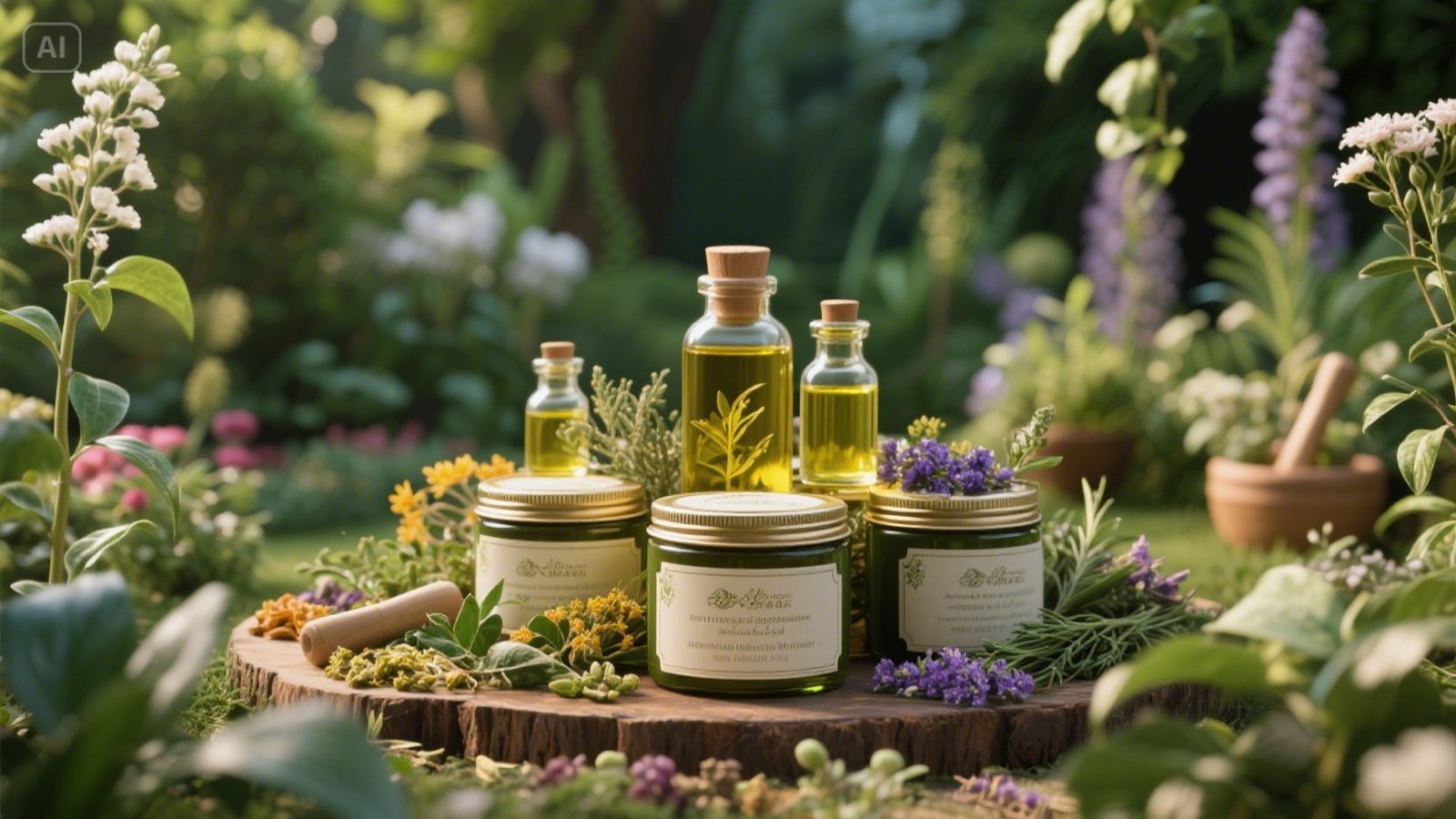
Since the earliest pages of Scripture, God provided His people with plants and oils for healing, worship, and daily living. These sacred botanicals were more than simple remedies—they carried deep spiritual meaning, symbolizing consecration, purification, and divine presence. Olive oil anointed prophets and kings, frankincense and myrrh rose as fragrant offerings in the Temple, and hyssop marked doorposts at the first Passover.
In biblical times, these plants were gifts of both practical necessity and holy purpose. They soothed wounds, calmed the heart, anointed the sick, and carried prayers heavenward as incense. Every herb and resin told a story of God’s care: oil that healed, incense that sanctified, perfume that worshipped.
✨ Why They Still Matter Today
Modern research affirms what the ancients already knew—these botanicals hold powerful medicinal and emotional benefits. Many are anti-inflammatory, antimicrobial, or calming to the nervous system. Oils like frankincense and myrrh are still used in natural remedies; aloe soothes burns; cinnamon supports circulation and blood sugar; and mint refreshes and aids digestion.
Beyond their health benefits, these plants remind us of a deeper truth: God wove healing into His creation. Each time we use these oils or herbs—whether as a diffuser blend, a natural balm, or a simple tea—we connect with a heritage of faith, worship, and divine provision.
The Bible reveals that healing is not only physical but also spiritual and emotional. When we pray while anointing with oil (James 5:14), or lift fragrant incense as an offering, we mirror the faith of those who came before us—seeking God’s presence, comfort, and guidance.
🌿 Key Biblical Botanicals and Their Uses
1. Olive Oil
Scripture: “Is anyone among you sick? Let them call the elders of the church to pray over them and anoint them with oil in the name of the Lord.” (James 5:14 NIV)
Biblical Role: Used to anoint kings, prophets, and the sick as a sign of blessing and healing.
Modern Use: Rich in antioxidants, supports heart health, and used as a base for anointing oils.
Application: For prayer, healing rituals, cooking, and topical use.
2. Hyssop
Scripture: “Purge me with hyssop, and I shall be clean; wash me, and I shall be whiter than snow.” (Psalm 51:7 KJV)
Biblical Role: Used in purification rites and Passover rituals.
Modern Use: Antiseptic, respiratory support, and digestive aid.
Application: Brewed as tea, burned as incense, or infused in oil.
3. Balm of Gilead
Scripture: “Is there no balm in Gilead? Is there no physician there?” (Jeremiah 8:22 NIV)
Biblical Role: Healing resin symbolizing restoration and comfort.
Modern Use: Anti-inflammatory, pain-relieving, and skin-healing.
Application: Made into salves or ointments for wounds and respiratory relief.
4. Frankincense
Scripture: “They presented gifts to Him: gold, frankincense, and myrrh.” (Matthew 2:11 NIV)
Biblical Role: Offered in worship, symbolizing prayer and God’s presence.
Modern Use: Calming, immune-boosting, anti-inflammatory.
Application: Diffused, burned as incense, or added to oil blends.
5. Myrrh
Scripture: “Nicodemus brought a mixture of myrrh and aloes, about seventy-five pounds.” (John 19:39 NIV)
Biblical Role: Used for embalming, perfumes, and purification.
Modern Use: Antimicrobial, wound-healing, and calming.
Application: Infused in oils, ointments, or incense.
6. Cinnamon & Cassia
Scripture: “Take for yourself… 500 shekels of liquid myrrh, half as much of fragrant cinnamon…” (Exodus 30:23 NKJV)
Biblical Role: Components of the holy anointing oil.
Modern Use: Supports circulation, blood sugar regulation, and immunity.
Application: Added to oils, teas, or incense blends.
7. Calamus
Scripture: “…and 250 shekels of fragrant calamus.” (Exodus 30:23 NKJV)
Biblical Role: Sacred aromatic grass used in anointing oil.
Modern Use: Digestive aid, calming aroma, and mild expectorant.
Application: Used in oil infusions or teas with caution due to potency.
8. Spikenard
Scripture: “Mary took a pound of very costly oil of spikenard, anointed the feet of Jesus…” (John 12:3 NKJV)
Biblical Role: Symbol of devotion and worship.
Modern Use: Calming, supports restful sleep and emotional balance.
Application: Applied as anointing oil or perfume.
9. Aloe
Scripture: “They took Jesus’ body and wrapped it with the spices, in strips of linen.” (John 19:40 NIV)
Biblical Role: Burial ointment and perfume.
Modern Use: Soothes burns, moisturizes skin, and aids digestion.
Application: Used as gel, juice, or ointment.
10. Galbanum
Scripture: “And of galbanum two hundred and fifty shekels…” (Exodus 30:34 NKJV)
Biblical Role: Sacred incense ingredient.
Modern Use: Anti-inflammatory, respiratory support, calming aroma.
Application: Burned as incense or diffused in prayer.
11. Mint
Scripture: “Woe to you… For you tithe mint and dill and cumin…” (Matthew 23:23 NKJV)
Biblical Role: Tithing herb, symbol of devotion and faithfulness.
Modern Use: Digestive support, refreshing, and antimicrobial.
Application: Brewed as tea, used in cooking or infusions.
12. Rose of Sharon
Scripture: “I am the rose of Sharon, and the lily of the valleys.” (Song of Solomon 2:1 KJV)
Biblical Role: Symbol of love, beauty, and flourishing.
Modern Use: Skin healing, antimicrobial, and uplifting.
Application: Used in teas, oils, or floral waters.
🕊️ Applying These Oils & Herbs Today
- Anointing and Prayer: Blend olive oil with frankincense, myrrh, or cinnamon for spiritual use.
- Healing Rituals: Apply aloe or balm of Gilead ointment for soothing skin or wounds.
- Incense and Diffusion: Use frankincense, myrrh, galbanum, and hyssop in worship or meditation.
- Teas and Culinary Use: Brew hyssop, mint, or cinnamon for digestion and overall wellness.
These sacred botanicals remind us that God placed healing and meaning in creation, weaving spiritual and physical well-being together as an act of divine love.



